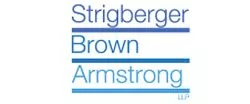The recent decision of Van Huizen v. Trisura Guarantee Insurance Company, reinforces that Courts have little interest in protracted coverage battles between parties.
The facts of the case are important but straight forward. There were three main entities. Mr. Barkley, Hastings Appraisal Services ("Hastings"), and Mr. Van Huizen. Mr. Barkley was a property appraiser. He was employed by Hastings. Mr. Van Huizen operated Hastings. Both Mr. Barkley and Mr. Van Huizen had their own professional liability insurance certificates.
In 2008, Mr. Barkley was hired to do an appraisal. It was alleged that he was negligent in his appraisal, resulting in an eventual loss for the property's insurer when the mortgagor defaulted. The insurer commenced a claim against Mr. Barkley and Hastings for negligent appraisal. A second claim was commenced against Mr. Van Huizen alleging that Mr. Barkley was either his employee or agent and was therefore vicariously liable.
Mr. Van Huizen reported the claim to Trisura, which subsequently denied coverage claiming that the "wrongful act" of Mr. Barkley did not trigger coverage under the policy insuring Mr. Van Huizen.
Trisura alleged that Mr. Van Huizen had coverage only for a negligent act or omission committed by him personally. Their position was that because Mr. Barkley who prepared the appraisal, he could have coverage under the certificate of insurance issued to him but not Mr. Van Huizen. Although the policy included coverage for the vicarious liability of an employer, it required that the negligent act or omission be committed by the member to whom the certificate of insurance was issued. Alternatively, Trisura argued that if an employer was entitled to coverage for the vicarious liability that arose out of the professional services rendered by a member other than the one named in the certificate, Mr. Barkley was not an employee of Mr. Van Huizen or Hastings as both had denied same in their respective statements of defence that he was.
Mr. Van Huizen viewed the case in simpler terms. In the main action and the third party claim, he was alleged to have been Mr. Barkley's employer and therefore vicariously liable for his negligent acts or omissions. He was insured both for legal claims arising from his personal actions and from his status as an employer. The denial that he was Mr. Barkley's employer in his statement of defence or that he was vicariously liable did not have an impact on the duty to defend because it was the allegations in the statement of claim and third party claim that matter.
The court cited Coast Capital Equipment Finance Ltd v. Old Republic, 2018 ONCA 540, for the following principles of law on the interpretation of insurance contracts:
- The court must search for an interpretation from the whole of the contract which promotes the true intent of the parties at the time of entry into the contract.
- Where words are capable of two or more meanings, the meaning that is more reasonable in promoting the intention of the parties will be selected.
- Ambiguities will be construed against the insurer.
- An interpretation which will result in either a windfall to the insurer or an unanticipated recovery to the insured is to be avoided.
Applying these principles and viewing the insurance contract as a whole, the court found Mr. Van Huizen had coverage for a legal claim arising from his own actions and also when it flows from his legal status as an employer of the alleged wrongdoer.
The Court found that under the policy, an insured does not have to be an appraiser; but he or she has to be an employer of someone who is and, if they are, the policy granted them coverage if they were alleged to be vicariously liable for the negligent acts or omissions of that member. As a result, Trisura had a duty to defend Mr. Van Huizen.
In parting, the court left the parties with this comment:
At its core, the liability issue is simple: did Mr. Barkley fall below the standard of care in preparation of the appraisal? Both he and Mr. Van Huizen carried insurance coverage for just this type of claim and yet, 10 years after that appraisal was done, litigation over coverage persists. I make this comment not in criticism of counsel but to affirm why, as the Court of Appeal has opined, these types of disputes need to be resolved expeditiously to avoid unnecessary costs and delay.
It is worth noting that in a perfect world, coverage litigation should be short and to the point. In many cases the issue should be determined solely on the pleadings and the contract of insurance. Courts will look for the reasonable interpretation of the clause that satisfies the contract as a whole. While creative and technical arguments have their place and should always be advanced, Justice Hurley would suggest that the ultimate question will be whether coverage makes sense in the circumstances.
See Van Huizen v. Trisura Guarantee Insurance Company, 2018 ONSC 4828
The content of this article is intended to provide a general guide to the subject matter. Specialist advice should be sought about your specific circumstances.

